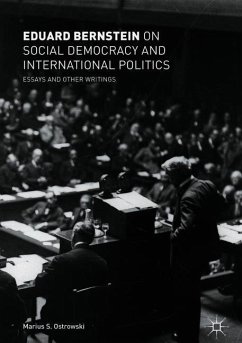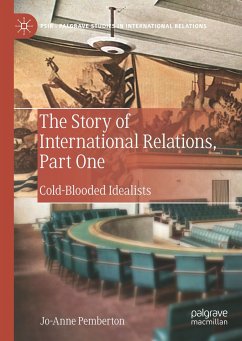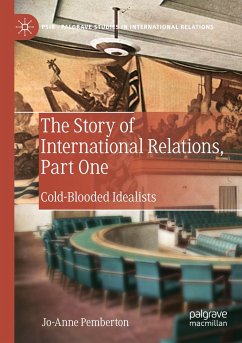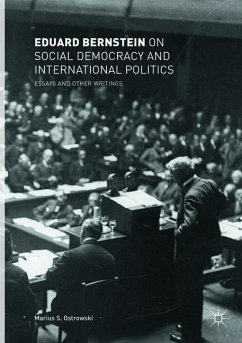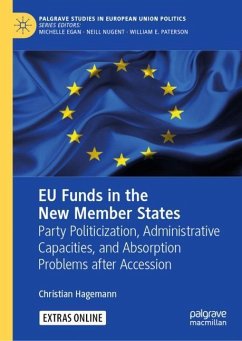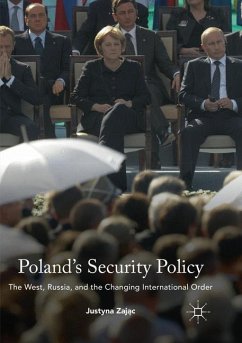
International Society and Europeanism
The Countries of Eastern Europe
Herausgegeben: Pérez Sánchez, Guillermo A.; Ramiro Troitiño, David; Martín de la Guardia, Ricardo; Kerikmäe, Tanel

PAYBACK Punkte
46 °P sammeln!
This pioneering volume examines Europeanism in the new international society that emerged after the First World War through the League of Nations, with a focus on the countries of Central and Eastern Europe (CEE), the Baltic countries, and the Balkans. The book analyzes how Europeanism was consolidated as an argument for the future, especially after the Second World War, when the three strong ideas of Europeanism came to fruition: peace among Europeans, good democratic government, and the socioeconomic welfare of peoples. By doing so, this book offers a comprehensive overview of the evolution ...
This pioneering volume examines Europeanism in the new international society that emerged after the First World War through the League of Nations, with a focus on the countries of Central and Eastern Europe (CEE), the Baltic countries, and the Balkans. The book analyzes how Europeanism was consolidated as an argument for the future, especially after the Second World War, when the three strong ideas of Europeanism came to fruition: peace among Europeans, good democratic government, and the socioeconomic welfare of peoples. By doing so, this book offers a comprehensive overview of the evolution of Europeanism and its positive influence in the countries of Eastern Europe, from the interwar period to the present day.
The book will appeal to researchers, students, and scholars of political science, international relations, European studies, and history, as well as policy-makers interested in a better understanding of Europeanism and the European integration process of the CEE, Baltic, and Balkan countries.
The book will appeal to researchers, students, and scholars of political science, international relations, European studies, and history, as well as policy-makers interested in a better understanding of Europeanism and the European integration process of the CEE, Baltic, and Balkan countries.







